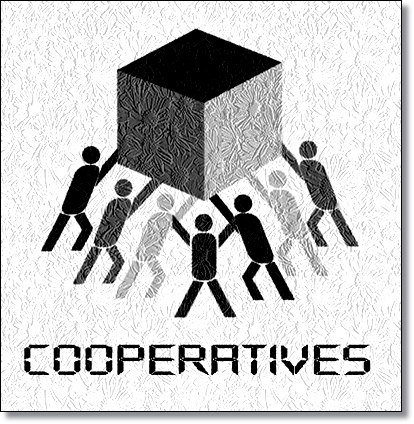Cooperatives: Key to Development

 |
Co-operatives hold some of the answers to the pressing socio-economic challenges that confront us. The triple challenges of poverty, unemployment and inequality that stubbornly stare all of us in the face, require men and women of courage and resolve.
In 1995, the United Nations resolved to officially designate the first week of July as a period to celebrate the International Day of Cooperatives. Since, then, all signatories to the International Labour Organisation Recommendation 193 committed themselves to celebrate and recognise the role that cooperatives play in the social and economic development of their respective countries. International Cooperative Day offers us a unique opportunity to strengthen and extend partnerships between government and the international co-operative movement, as well as other stakeholders.
Cooperatives as a resilient form of business enables women to easily access business and work opportunities, raise savings and extend education and training not only to them, but also to the local communities in which they are operating.
One of the most striking things about South Africans that continues to confound critic and admirer alike, continues to be our incredible capacity as a nation to rise everyday to defeat despair and steadfastly refuse to be passive participants in the process of rebuilding our country. And the co-operatives are an example of this spirit of vuk’uzenzele. Cooperatives by their very nature are about initiative and self-reliance.
1994 liberated many of our people from a culture of passive submission to a culture of v’ukuzenzele. Many of our successful co-operatives are an example of how much we can achieve if we seize the opportunities brought by our democracy and freedom to create a better life for themselves and their fellow citizens. 1994 gave our people a passport to take control of their lives and responsibility for their destiny. It presented an opportunity for us to rigorously lay the foundation for building a new nation. It was an opportunity for us, in our different sectors of human endeavour, to collectively build for ourselves a future that is qualitatively better than our ugly past.
We have a responsibility to take our destiny into our own hands. We can no longer rely on the outside world. The world dynamics have changed. The world has moved on. Those who previously saw us a child that needed to be supported and nurtured now see us as their competitors. The world is not waiting for us. We must take the initiative and move very fast. The world is not waiting for us!
The co-operatives have refused to be passive spectators in the ongoing reconstruction and development of our country. Instead, they consciously chose to dirty their hands, rather than pontificate from the pulpit; to contribute rather to complain and criticize from the sidelines; to make mistakes and rise up again in the course of creating a better life for themselves and their fellow citizens.
Co-operatives are at the centre of the much-needed village and township economic revival. With the support of government, we must ensure that the services and goods consumed in townships and villages are produced by men and women from those townships and villages.
Since the International Cooperative Alliance (ICA) and UN resolutions, cooperatives around the world have been celebrating the International Day of Cooperatives in many ways. After South Africa became one of the signatories to the ILO Recommendation 193, committing it to the promotion and development of cooperatives, the country started celebrating International Day of Cooperatives in 2006. This has continued to this day.
As Roberto Rodriguez reminds us: “The greatest enemies of peace are social exclusion and concentration of wealth worldwide. Co-operatives not only prevent this, but they empower a billion of people economically both directly and indirectly and as result should be regarded as defenders of peace.”
During the global financial crisis which was characterized by massive public bailouts of private, investor-owned banks worldwide, co-operative banks in the form of credit unions and building societies displayed prudence by the manner in which they have primarily focused on the needs of their members and avoiding excessive risk taking. Whilst commercial banks went through difficulty and in many instances had to rely on bailouts, co-operatives banks remained stable.
Cooperatives are by their very nature a means by which social businesses and enterprises are created. Cooperatives are catalysts for economic growth and sustainable development for disadvantaged, vulnerable, and marginalised groups as well as those with limited resource capabilities. Local and international experience shows that the sustainability of these enterprises contributes to poverty alleviation, giving poor people the opportunity to lift themselves out of poverty and its associated forms of deprivation. Cooperatives contribute to the empowerment of poor and marginalised people.
While a lot of progress has been made in the area of cooperatives development and growth, there are still challenges that need to be addressed. Among these challenges are: the lack of adequate economic and social impact statistics on co-operatives covering all sectors; and poor appreciation of the co-operatives business model by the public. Financial and non-financial support given to co-operatives still remains scattered thus making it difficult for co-operatives to effectively access such support easier and much quicker on a wider scale.
The much-needed economic growth and employment opportunities will come from a radical policy that enables co-operatives and small businesses to thrive and grow into profitable enterprises. We are confident that this intervention will help unlock economic opportunities and thus promote inclusive economic growth and sustainable employment, particularly for women, youth and people with people with disabilities.
By Lindiwe Zulu
Minister of Small Business Development, Republic of South Africa.
